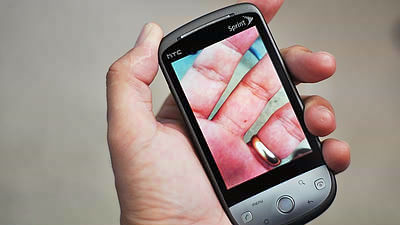It is proved for the first time that an individual can be tracked using Bluetooth.

It has been pointed out that the Bluetooth signals emitted by smartphones have their own
Bluetooth signals can be used to identify and | Eurek Alert!
https://www.eurekalert.org/news-releases/955287
Mobile devices such as smartphones, smart watches, and fitness trackers emit Bluetooth signals about 500 times a minute. These signals are used to connect to Apple's lost device tracking service 'Find My' and other devices.
Previous studies have shown that fingerprints exist in Wi-Fi and other wireless technologies, but tracking individual devices with Bluetooth has not been easy. In the case of Wi-Fi, it is possible to identify individual devices by using the fact that the Wi-Fi signal uses a bit string with a fixed pattern called preamble. On the other hand, the preamble of the Bluetooth signal is so short that it has been difficult to identify individual devices that use Bluetooth.

So researchers at the University of California, San Diego devised a new way to see the entire Bluetooth signal without relying on preambles. We have developed an algorithm that estimates two different values contained in a Bluetooth signal.
Researchers tested the algorithm on 162 mobile devices detected in public places such as coffee shops, and succeeded in identifying 40% of the devices. Next, we scaled up the experiment and observed 647 mobile devices in a public corridor over a two-day period. The results show that 47% of these devices have their own fingerprints. Finally, researchers have demonstrated that Bluetooth signals can be tracked by fingerprinting volunteer-owned mobile devices and tracking volunteers entering and exiting their homes.
We have also discovered some challenges that attackers may actually face. For example, changes in ambient temperature can change the Bluetooth fingerprint. Also, since the output of the Bluetooth signal differs depending on the device, it also affects the traceable distance.

Researchers point out that this method requires a high degree of expertise from attackers and is unlikely to be a threat to the general public today. It also emphasizes that while you can track individual devices, you cannot get information about the owner of the device.
'In modern society, Bluetooth, the wireless signal frequently emitted by all personal mobile devices, poses a greater threat,' said Nishit Bhaskar, who was involved in the research.
Researchers also say that disabling Bluetooth may not stop all mobile phones from emitting Bluetooth beacons. For example, turning off Bluetooth from the Control Center on the home screen of some Apple devices does not stop the beacon from emitting. 'As far as we know, the only way to ensure that the Bluetooth beacon is turned off is to turn off the cell phone,' the researchers said.
Related Posts:
in Security, Posted by log1p_kr





